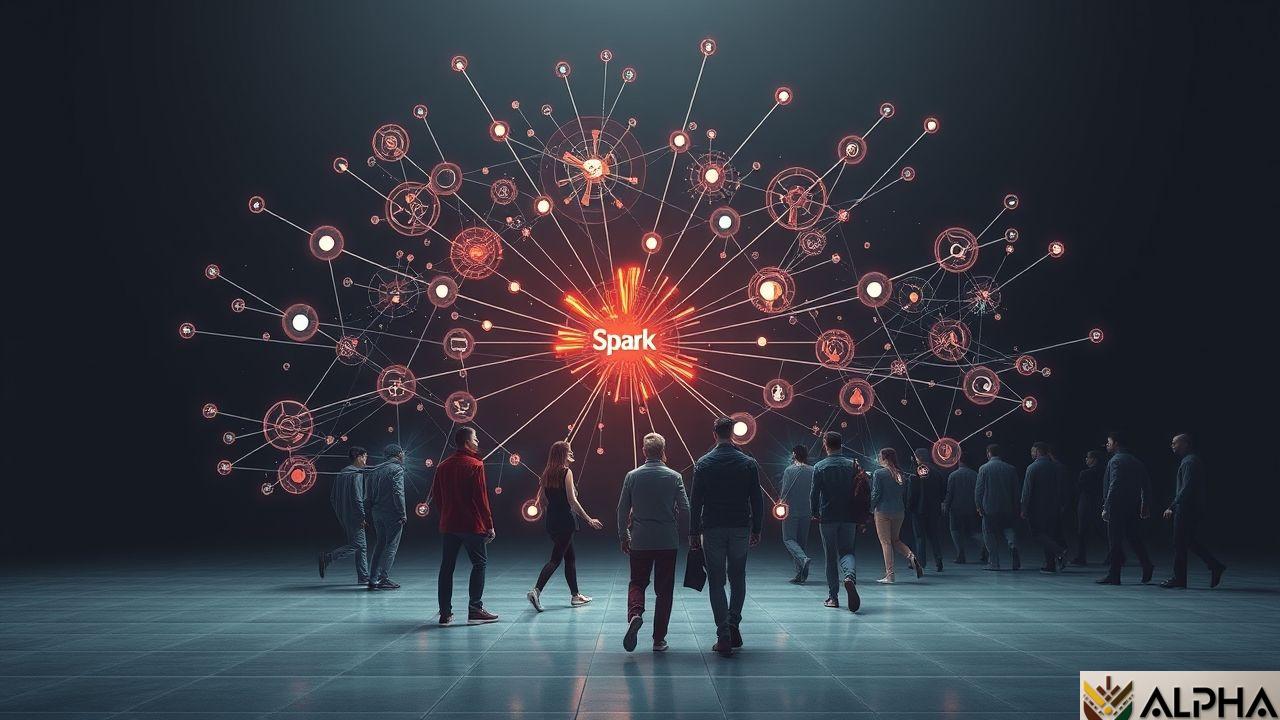Spark: Igniting Scientific Innovation with AI
Spark: Igniting Scientific Innovation with AI
Large language models (LLMs) are no longer just tools for generating text; they’re emerging as powerful catalysts for scientific discovery. The recent arXiv paper, ‘Spark: A System for Scientifically Creative Idea Generation,’ showcases this exciting potential. Spark isn’t just another LLM; it’s a sophisticated system designed to generate novel research ideas, and it’s already making waves in the field of computational creativity (CC).
The Spark System: More Than Just an LLM
Unlike many LLMs focused solely on text generation, Spark combines the power of retrieval-augmented idea generation with a unique ‘reviewer’ model. This reviewer, cleverly named ‘Judge,’ has been trained on a massive dataset of 600,000 scientific reviews from OpenReview. This dual approach allows Spark to not only generate innovative ideas but also to assess their potential merit, mimicking the peer-review process crucial to scientific advancement.
This system is a significant leap forward. Imagine an AI that not only proposes new research directions but also provides initial feedback on their feasibility and potential impact. This is the promise of Spark, offering a valuable tool to accelerate scientific progress across various disciplines.
Real-World Applications and Potential
The potential applications of Spark are vast. Consider its use in tackling complex challenges across various scientific fields:
- ✓ Drug Discovery: Generating novel drug candidates and predicting their efficacy.
- ✓ Materials Science: Designing innovative materials with specific properties.
- ✓ Climate Change Research: Developing strategies to mitigate climate change impacts.
- ✓African Agriculture: Developing drought resistant crops and enhancing food security.
Moreover, Spark’s ability to evaluate ideas could revolutionize the grant application process, allowing for more efficient allocation of resources towards promising research endeavors. This could have a particularly profound effect on regions with limited research funding, such as parts of Africa, where AI-assisted research could unlock significant potential.
The Future of Scientific Discovery
The release of Spark’s annotated dataset is a commendable step towards fostering collaborative research and pushing the boundaries of computational creativity. By sharing their work and data, the Spark team encourages other researchers to build upon their foundation, leading to further advancements in AI-powered scientific idea generation. This open approach signifies a shift towards a more collaborative and efficient approach to scientific innovation, with significant implications for solving global challenges.
Points to Remember
- ✓ Spark combines LLM idea generation with a review model (‘Judge’) trained on a vast dataset of scientific reviews.
- ✓ It offers a powerful tool to accelerate scientific progress across many fields.
- ✓ The release of the annotated dataset fosters collaboration and promotes further research in AI-driven scientific innovation.
- ✓The potential of using AI-assisted tools to solve problems for Africa and other developing nations is immense.
Share this content:














Laisser un commentaire